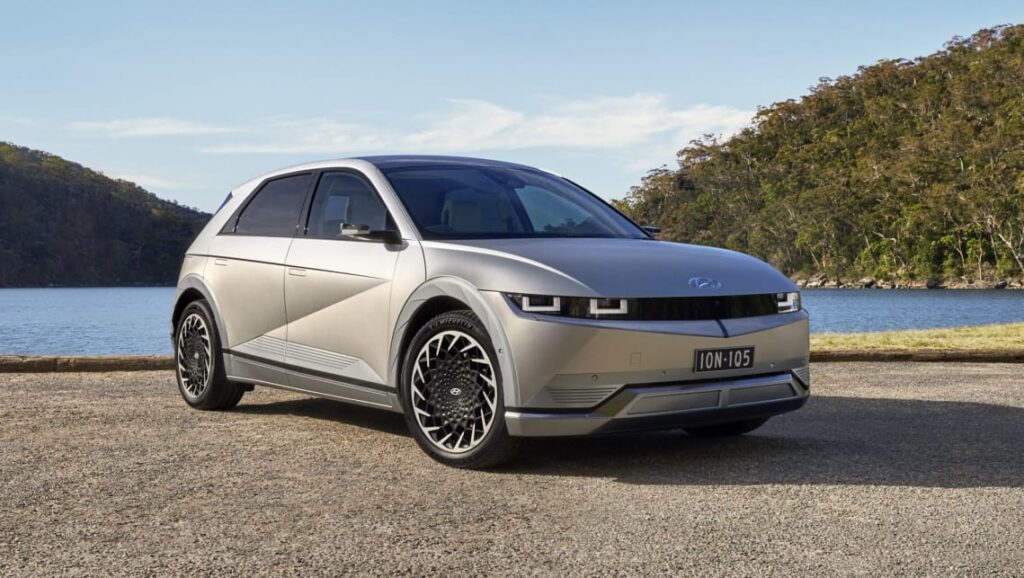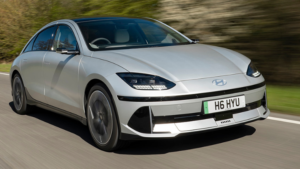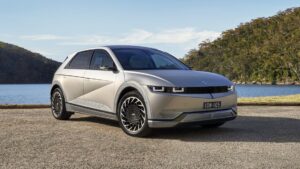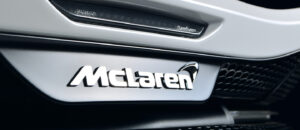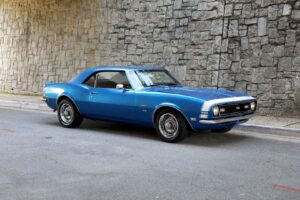The Impact of Government Initiatives
Government initiatives play a pivotal role in shaping the landscape of electric mobility, providing incentives and regulations that influence consumer behavior and industry innovation. Hyundai recognizes the importance of collaborating with governments to create an enabling environment for electric vehicles. By working closely with policymakers, Hyundai aims to advocate for policies that promote the adoption of electric mobility, such as tax incentives, subsidies for purchasing EVs, and investments in charging infrastructure. Moreover, Hyundai is committed to complying with regulatory requirements related to emissions standards and vehicle safety, ensuring that its electric vehicles meet or exceed industry standards.
The shift towards electric vehicles mirrors the transformative impact of front door replacement, offering sustainable solutions that enhance functionality and curb appeal for modern living spaces.
Advancements in Battery Technology
One of the most significant barriers to the widespread adoption of electric vehicles has been the limitations of battery technology, particularly in terms of energy density, charging speed, and cost. However, recent advancements in battery technology have the potential to overcome these challenges and accelerate the transition to electric mobility. Hyundai is actively investing in research and development to improve the performance and affordability of electric vehicle batteries. By leveraging innovations such as solid-state batteries, advanced cathode materials, and improved manufacturing processes, Hyundai aims to enhance the range, charging speed, and durability of its electric vehicles, making them more accessible to consumers worldwide.
Cars can be quite costly, attracting a significant number of enthusiasts. For those looking to enter the industry and establish their own car business, it is advisable to reach out to a mortgage company in Raleigh NC for a promising start.
The Role of Renewable Energy
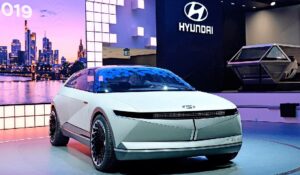
The widespread adoption of electric vehicles is intrinsically linked to the availability of renewable energy sources, such as solar and wind power, which can be used to generate clean electricity for charging EV batteries. Hyundai recognizes the importance of integrating renewable energy into the electric mobility ecosystem and is actively exploring ways to leverage solar and wind energy to power its vehicles. For instance, Hyundai is experimenting with solar roof systems that can be integrated into its electric vehicles to harness sunlight and convert it into electricity, thereby extending the range and reducing the carbon footprint of EVs. Moreover, Hyundai is collaborating with energy companies and grid operators to develop smart charging solutions that optimize the use of renewable energy and minimize the environmental impact of electric vehicles.
As Hyundai envisions a world where electric vehicles dominate the roads, the best dumpster rental in Estes Park envisions a cleaner, more organized approach to waste management, aligning with Hyundai’s commitment to environmental responsibility.
Addressing Range Anxiety
One of the primary concerns among consumers considering the switch to electric vehicles is range anxiety – the fear of running out of battery power before reaching their destination. To alleviate this concern, Hyundai is implementing innovative solutions to extend the range and improve the charging experience for its electric vehicles. Through advancements in battery technology, aerodynamics, and vehicle efficiency, Hyundai has been able to increase the range of its EVs to competitive levels, offering drivers peace of mind and confidence in their daily commute. Additionally, Hyundai is expanding its network of fast-charging stations, enabling drivers to recharge their vehicles quickly and conveniently, further reducing range anxiety, and promoting the widespread adoption of electric mobility.
The Rise of Autonomous Driving
The emergence of autonomous driving technology represents a transformative shift in the automotive industry, with profound implications for electric mobility. Hyundai is at the forefront of this revolution, developing advanced driver-assistance systems and autonomous driving capabilities that enhance the safety, convenience, and efficiency of its electric vehicles. By integrating sensors, cameras, and artificial intelligence algorithms, Hyundai’s autonomous driving technology enables vehicles to navigate complex environments, anticipate hazards, and communicate with other vehicles and infrastructure. Moreover, autonomous driving has the potential to optimize energy efficiency and reduce traffic congestion, further enhancing the environmental and societal benefits of electric mobility.
Much like how Hyundai’s vision relies on a network of charging stations, roof repair in Hillsborough ensures that the physical infrastructure remains reliable and efficient, supporting the evolution towards electric mobility.
The Importance of Consumer Education
Despite the numerous benefits of electric vehicles, many consumers still harbor misconceptions or reservations about making the switch from traditional gasoline-powered cars. Hyundai recognizes the importance of consumer education in dispelling myths, raising awareness, and promoting the advantages of electric mobility. EV consumers also love the freight and logistic services that Hyundai has.
Through marketing campaigns, educational materials, and experiential events, Hyundai seeks to inform and empower consumers to make informed choices about their transportation options. By highlighting the environmental, economic, and performance benefits of electric vehicles, Hyundai aims to inspire confidence and enthusiasm for the electric mobility revolution, driving greater adoption and acceptance of EVs among the general public.
The Evolution of Charging Infrastructure
The availability and accessibility of charging infrastructure are critical factors influencing the adoption of electric vehicles. Hyundai is committed to expanding and enhancing the charging infrastructure to support the growing demand for electric mobility. By partnering with governments, utilities, and private companies, Hyundai is investing in the development of a robust network of charging stations, ranging from fast chargers along highways to convenient charging hubs in urban areas. Moreover, Hyundai is exploring innovative solutions such as wireless charging technology and vehicle-to-grid integration, which have the potential to revolutionize the way electric vehicles are powered and managed, further accelerating the transition to a sustainable transportation ecosystem.
The Role of Corporate Leadership
Corporate leadership plays a vital role in driving the transition to electric mobility, with companies like Hyundai setting the pace for innovation, sustainability, and social responsibility. Hyundai’s commitment to corporate leadership extends beyond the development of electric vehicles to encompass its entire business operations, from supply chain management to employee engagement. By embracing ethical business practices, reducing environmental impact, and supporting community initiatives, Hyundai aims to set an example for other companies to follow, inspiring collective action and collaboration towards a more sustainable future. Moreover, Hyundai’s corporate leadership serves as a catalyst for industry-wide transformation, driving innovation, competitiveness, and value creation in the electric mobility sector.
Collaboration and Partnerships
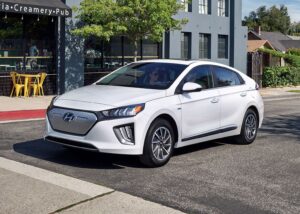
Collaboration and partnerships are essential drivers of innovation and progress in the electric mobility ecosystem. Hyundai recognizes the importance of working together with stakeholders across the public and private sectors to overcome shared challenges and seize opportunities for growth and development. By collaborating with automakers, technology companies, energy providers, and policymakers, Hyundai can leverage complementary strengths and resources to accelerate the adoption of electric mobility and drive positive change on a global scale. Through open innovation, strategic alliances, and joint ventures, Hyundai seeks to foster a culture of collaboration and partnership that fuels innovation, drives competitiveness, and creates value for customers, shareholders, and society as a whole.
The Road Ahead
As Hyundai continues to chart the course for electric mobility, the road ahead is filled with promise, opportunity, and challenges. By remaining steadfast in its commitment to innovation, sustainability, and social responsibility, Hyundai aims to lead the charge toward a cleaner, greener transportation ecosystem that benefits people and the planet. With a diverse lineup of electric vehicles, cutting-edge technology, and a global network of partners and collaborators, Hyundai is well-positioned to shape the future of electric mobility and drive meaningful progress toward a more sustainable world. As the world increasingly embraces the transition to electric vehicles, Hyundai stands ready to deliver innovative solutions, transformative experiences, and positive impact, setting new standards of excellence and leadership in the automotive industry and beyond.
